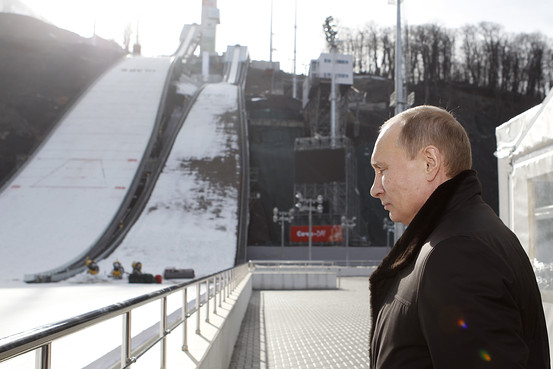Russia is not Always as Cold as we Think
As Seen in Huffington Post:
If Sochi is cold enough for Winter Olympic snow events, it’s barely cold enough. In fact, the city is more known for subtropical beach getaways than winter sports. But because the cold in Russia is legendary, that’s what we come to expect. Text books and the internet remind us that Hitler learned of Russia’s cold long after Napoleon entered the School of Hard Knocks. World War II records have many references to -40 degrees, the ominous point where Centigrade and Fahrenheit charts agree. The worst always finds itself to the media and into the history books. Then we tend to accept those extremes as typical.
Even so, to those of us in the international adoption community, those extremes were not Russia’s coldest days. Ask anyone who has adopted a Russian child, or who was in the process and waiting for the completion of that event. To us, we would tell you that Russia’s coldest day was December 28, 2012. That was the day that President Vladimir Putin signed the Dima Yakovlev Law, effectively ending two decades of U.S. citizens adopting Russian orphans. The law was particularly harsh because of it’s halting of some adoptions where orphans had already met their prospective parents. Even worse, many of the children in limbo had special needs or challenges that would preclude them from ever being adopted in Russia, or probably almost anywhere else in the world. Yes, it was a cold day that could rival anything from the files of World War II pictures, with lines of frozen corpses. Make no mistake; people will die because of Russia’s ban on foreign adoptions, a country where life expectancy of a person who ages out of an orphanage is under thirty.
I have yet to see a country that has an adequate system
for helping children who don’t have active parents
Those situations are tragic and they tear out my heart. But are they typical? Is that what Russia really is? Do Russians hate children and revel in their pain? I would argue that for every Siberia, there are many Sochis. I go a little easier on the Russians than my peers do, because I have tried to walk a mile in their shoes. Had our economy failed in the early nineties, loading institutions with our country’s children, children we could not afford care for, I hope we would have allowed our enemy-of-the-day to give those children homes and families. Even so, none of us would have been happy with that scenario and we would have looked for ways to care for our own as soon as we possibly could. I’m sure we would have blown stories of abuse out of proportion, to justify our position. I’m confident we would have waited for the right political impasse to cover as a reason for what would seem like a senseless act. The real reason we would stop those adoptions, though, would be because we wanted to take care of our own.
I am angry at Russia for stopping adoptions so abruptly and I am frustrated that they have stopped them before their system is completely ready to take over. Still, I have yet to see a country that has an adequate system for helping children who don’t have active parents.
I love Russia, though. My daughters (some of them teens when they joined our family) really struggle with that. They only remember Russia as an abusive home, and then an orphanage. For the longest time they refused to listen to anything positive about the land of their births. In fact, one of them cornered me at one point and angrily asked me why I loved Russia so much. At first I didn’t know what to say. How could I love something that had hurt her so deeply? But then the answer came; “I love Russia because Russia gave me you.” Even though Russia has discontinued almost all international adoptions, I will be forever grateful for the five wonderful children that the country entrusted to my care.
As I take the opportunity of the Sochi Winter Olympics to share something wonderful about Russia with my children, they will cheer for both of their countries (because of my urging) and I will join them. I will not be remembering Siberian cold at that time. I will be basking in the relatively warm winter of Sochi, and the tender heart of Russia that it so carefully hides behind its battle armor.



